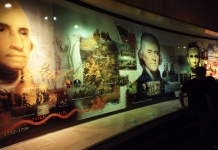Identity politics and tribalism are interconnected concepts that have been increasingly discussed in contemporary political and social discourse.
Identity politics refers to political positions or movements that focus on the specific interests and perspectives of groups with which people identify primarily, often based on race, ethnicity, gender, sexual orientation, religion, or social background. Identity politics seeks to address inequalities and injustices by advocating for these specific groups, aiming for recognition, rights, and sometimes reparative justice for historical and ongoing oppressions.
Tribalism traditionally refers to the organization of societies into tribes based on kinship or shared interests for survival, in modern contexts, tribalism often describes a more psychological or social phenomenon where individuals strongly identify with a group to the extent of favoring that group over others, often leading to in-group loyalty and out-group hostility. This can manifest in political behavior where allegiance to one’s “tribe” (be it political parties, ideological groups, or cultural identities) supersedes broader societal interests or rational policy evaluation.
Both identity politics and tribalism contribute to polarization by emphasizing group identities over shared citizenship or common humanity. This can lead to a political landscape where dialogue across group lines becomes difficult, or even impossible.
Politicians and movements might leverage identity politics to mobilize voters or supporters by appealing to shared grievances or cultural identities. Tribalism then becomes the mechanism where these identities are fortified, often leading to a ‘us vs. them’ mentality, which can further entrench political divides.
The rise of these dynamics has led to a cultural landscape where every issue might be viewed through the lens of identity. This can both empower marginalized groups by giving them a platform for their issues but also risks reducing complex individuals to singular identity markers, potentially oversimplifying nuanced human experiences.
Critics argue that identity politics and tribalism can fragment society, making it harder to address universal issues like economic inequality or climate change that require collective action. They might point to how these dynamics can lead to what’s been termed “cancel culture” or “virtue signaling,” where moral posturing or group allegiance overshadows substantive debate. Conversely, defenders see these movements as necessary for rectifying historical injustices and providing representation for voices historically ignored in mainstream politics.
Over time there’s a nuanced understanding emerging. Some commentators argue that while identity politics might start with legitimate grievances, the tribalistic approach can sometimes undermine the very unity needed for broader social change. Others highlight how modern digital platforms amplify tribalism by creating echo chambers, where algorithms feed users content that confirms their biases.
Identity politics and tribalism in contemporary society represent a complex interplay where the quest for recognition and justice for specific groups meets innate human tendencies towards group loyalty, often at the expense of broader societal cohesion. This dynamic reveals both the strengths in advocating for underrepresented groups and the potential pitfalls of overly divisive group identities.







